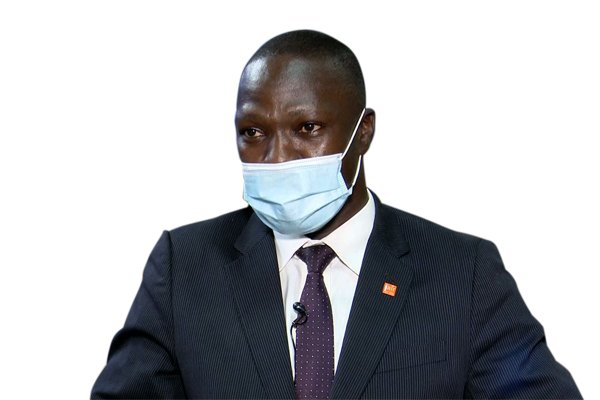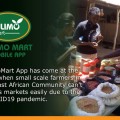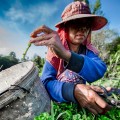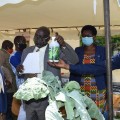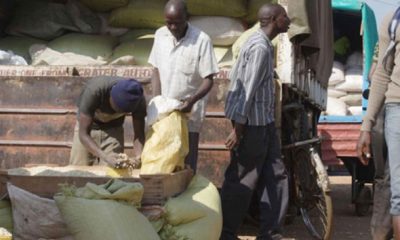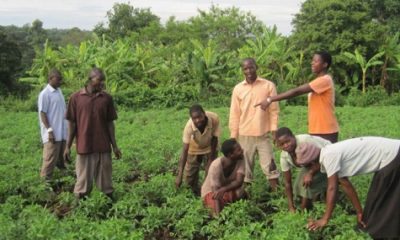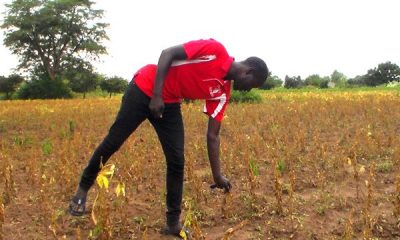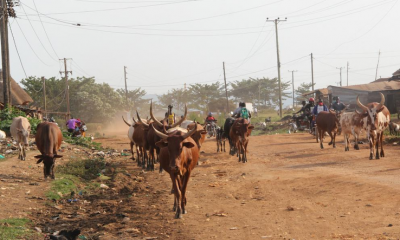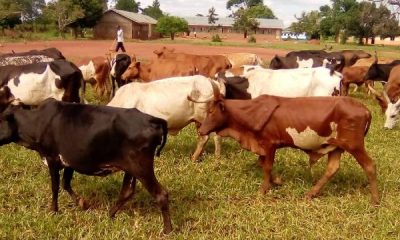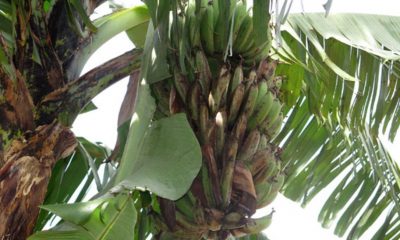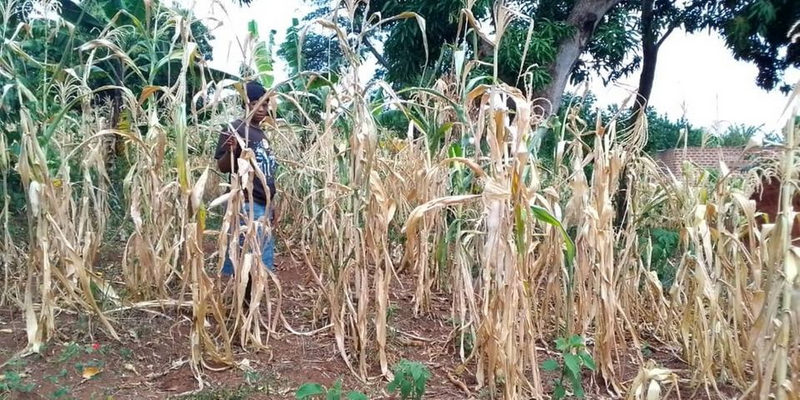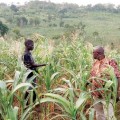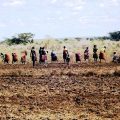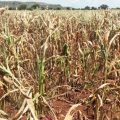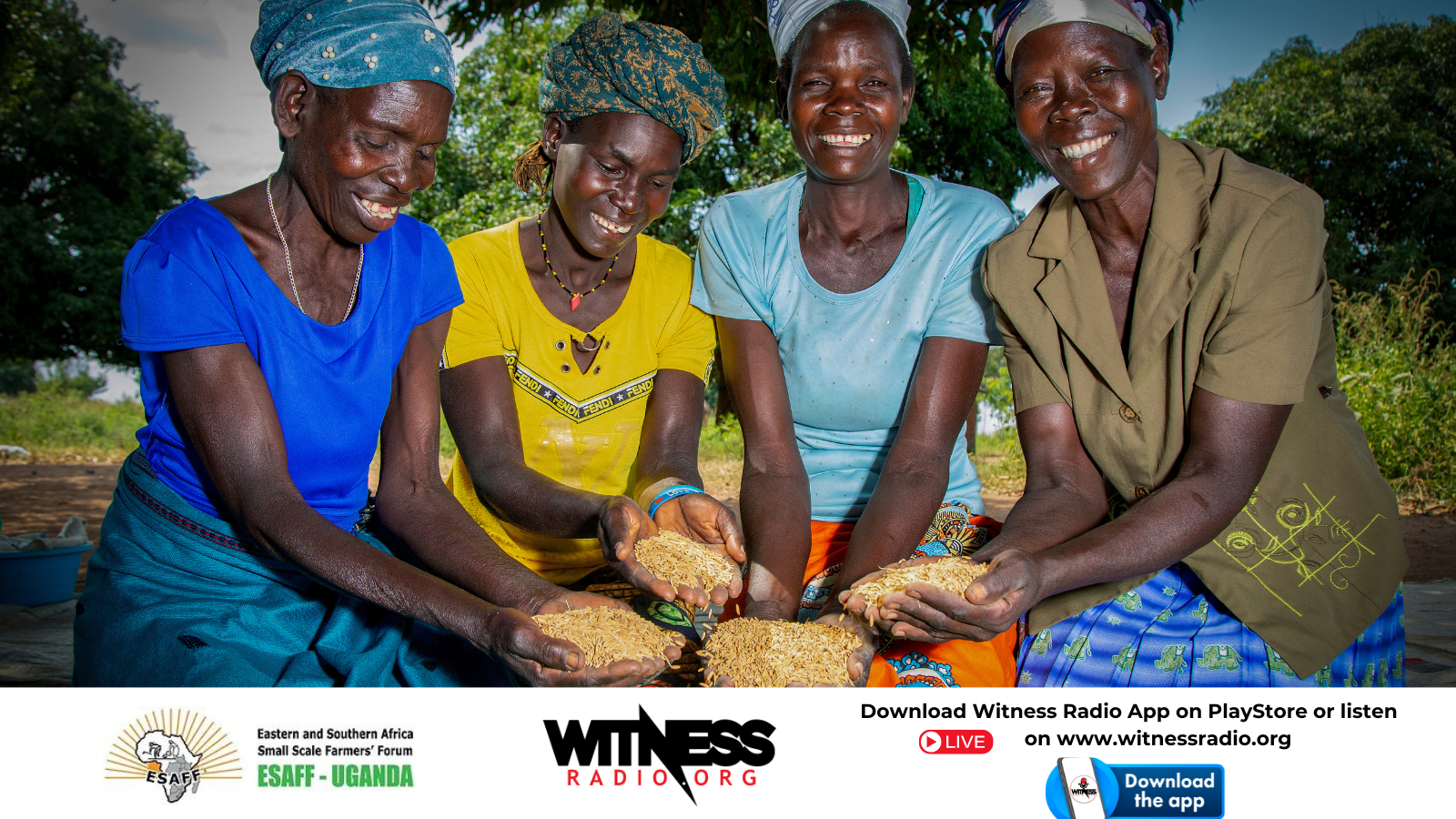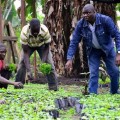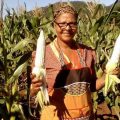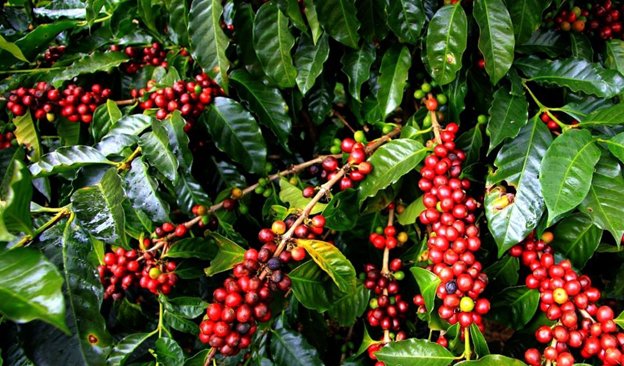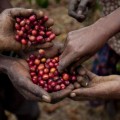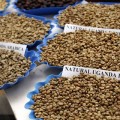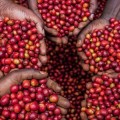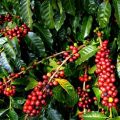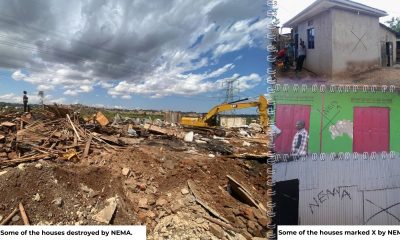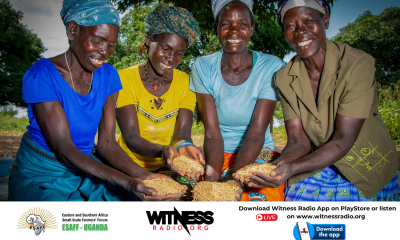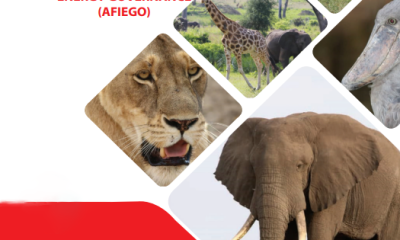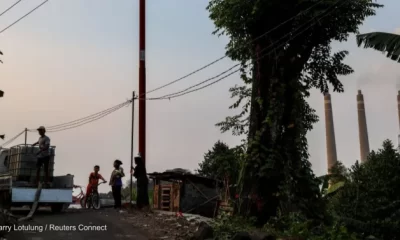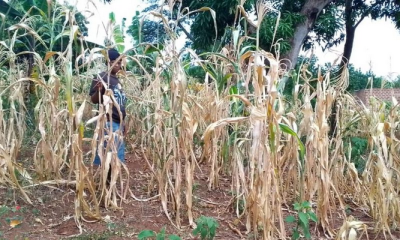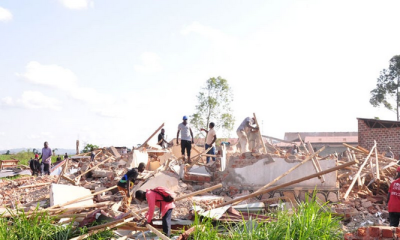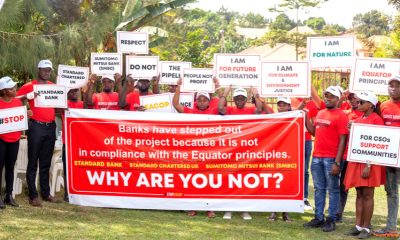Many farmers say they had borrowed money from banks and Saccos
During the first planting season, which usually kicks off in March, many farmers had hoped for a bumper harvest.
However, the unrelenting dry spell in some parts of the country has withered the crops, resulting in poor food harvests mainly maize and beans.
Although some districts received rains last week, many farmers, especially those growing maize and groundnuts, are counting losses after several acres of the crops got scorched by sunshine.
In the central region, the most affected are farmers in the districts of Nakasongola, Kiboga, Kayunga, Mubende, Kyankwanzi, Gomba, and parts of Rakai.
In Nakasongola District, the most affected sub-counties include; Nabiswera, Wabinyonyi, Kalungi, and Kalongo where farmers now stare at eminent hunger and lost cash invested in their respective gardens.
In Mulonzi Parish, Nabiswera Sub-county, Mr Simon Male has lost 35 acres of maize.
“I grow maize on a commercial scale, but my entire garden is scorched by the hot sun. I have lost the hope of harvesting any grains from this particular season. I did not anticipate the hot sun. Part of the money invested in my agriculture projects is from the loans,” he says.
Mr Ali Kisekka, a maize farmer and chairperson of Kabulasoke Sub-county in Gomba District, says all his 30-acre maize plantation withered two months after germination (between March and April).
“I spent money on renting the land, labour, purchase of seeds, and other inputs, amounting to Shs6m. Unfortunately, the rain did not come in sufficient amounts,” he says.
“Almost 50 percent of farmers in my sub-county are counting losses. We are now praying for the next season,” he adds.
Irreparable damage
Mr Emma Kintu, another farmer in Kabulasoke, says: “The damage has already been caused and we cannot save anything even if we get rain now, we are going to cut the maize and use it for mulching.”
Mr Samuel Muwata, a produce dealer in Kampala’s Kisenyi suburb, says the poor maize harvest may cause a spike in maize flour prices as was the case last year.
“The demand [for maize ] is increasingly high, and if there is no importation of maize from countries like Tanzania, there will be shortage which will cause prices to increase possibly in August or at the beginning of September when schools open for Third Term,” he says.
Currently, a kilo of maize grains costs between Shs800 and Shs1000, down from Shs500 a month ago while maize flour (corn) is between Shs1,800 and Shs2,000, down from Shs1,500.
Mr Augustine Wafula, a farmer in Busabana Village, Lunyo Sub-county, Busia District, says he only harvested four acres of maize from his five-acre garden. “I got a bank loan to plant five acres of maize, but ended up harvesting only four bags,” he says.
Mr Wafula’s loss has dealt a huge blow to his marketing prospects, especially in Kenya, which is a good destination for maize from Sofia and Marachi markets in Busia Municipality.
Because of the relatively good market for cereals in Kenya, several Ugandans were forced to rent land to plant maize. Unfortunately, the weather has left most of them counting losses.
Mr Anatoli Kizza, a farmer in Kiyindi Village, Buikwe District, says he used to supply schools with maize grains, but since the beginning of the year, he had not planted any because of the dry season.
“I tried to purchase the maize grains locally, but they could not reach the kilogrammes desired by the schools,” Mr Kizza says, adding that the dry spell is a result of abuse of the environment, including deforestation and encroachment on wetlands.
In Bugiri District, Mr Imani Mumbya, a groundnuts farmer in Isegero Village, Nabukalu Town Council, says he harvested nothing after planting the crop in his five-acre garden last season [August to December 2023] due to the unpredictable weather pattern, which was characterised by scorching sunshine.
Abrupt weather change
Mr Mumbya says following the first rains in January, he rushed to plant groundnuts. However, the rains abruptly stopped before the seeds barely sprouted.
He adds that because few seedlings sprouted, he cleared the garden in preparation for the second rains in April, which lasted until the end of May and helped the seedlings to sprout.
“But before the groundnuts could spend their entire 86-day period to mature, another drought came which prevented me from harvesting,” Mr Mumbya further explains, describing it as “the worst season during the 10 years he has been a farmer”. Mr Aloysious Kizito, a renowned farmer in Bbugo Village, Kyotera District, says maize harvests in the area have been too low as compared to last season which has reduced farmers’ expected returns on invested funds.
Although this area previously received heavy rains, Mr Kizito believes it was not evenly spread throughout the whole season, which led to poor harvests.
“We received heavy rains for two and half months yet most seasonal crops take three to four months to completely mature,” he says.
The most affected seasonal crops are maize, soya beans, peas, and Gnuts, which is likely to result in food shortages in the coming months.
Mr Abdul Birungi, a cereal farmer in Lubumba Village, Kyotera District, says although he reaped seven tonnes of maize last season from his seven-acre garden, this season he got only one tonne .
He attributes the poor harvests to what he describes as misleading messages issued by experts from the Uganda National Meteorological Authority (UNMA) which warned farmers against planting crops in January and early February.
“I wanted to plant in early January, but changed my mind upon getting their [UNMA] advice, I feel puzzled because those that didn’t go with their advice in our area at least got good harvests,” he says.
But Ms Lillian Nkwenge, the UNMA principal public relations officer, says many farmers always fail to follow their forecasts as issued and end up blaming the Authority.
“The country is not expected to have major changes in the usual rainfall patterns this year. Most parts of Uganda normally have two rainfall seasons separated by dry season. So , we hope to get the second wet season in early September,’’ she says.
Weighing options
In Teso Sub-region where farmers have for decades relied on rain-fed farming, they have started having a discourse on how to wholly revert to livestock or continue to depend on crop farming which continues to be affected by the erratic rainfall pattern.
The call to revert to livestock farming comes amid yet another failed crop harvest.
Mr John William Ejiet, the Kapelebyong District production officer, says when farms were at a critical stage of flowering, the drought again set in, leaving hundreds of farmers dejected.
He says now is the time for farners to invest in micro-scale irrigation.
“Whereas there are small grants for small irrigation from the government for farmers, the rate of adoption is still low yet we are at a critical moment when we need to adapt to new farming techniques other than the rain-fed farming which is no longer reliable,” Mr Ejiet says
Ms Joyce Akwii, a resident of Omodoi in Ocokican Sub-county, Soroti District, says she invested more than Shs3m in crop farming but got less than Shs500,000.
“I have resolved that come next year, my five acres of land that I have been using for crop farming will be turned into a goat and sheep farm,” Ms Akwii explains.
Last resort
Mr Mike Odongo, the chairperson of Ngora District, says for farmers to have a win -win situation, it is high time that they invested in both livestock and crop farming,.
“The goats and sheep can scavenge in the harsh environment,” Mr Odongo reasons.
He says the once good environment that defined Teso has heavily been depleted and it is one of the reasons for the altered rainfall patterns.
“There is a need for soul searching among people of Teso, and deliberately focus on a greening campaign like we have started in Ngora with over 20,000 trees donated by Roofings Group and Centenary Bank. This is one of the mechanisms that may enable farmers to manage to retain water in the soil,” the district chairperson advises.
Mr Stephen Ochola, the Serere District chairperson, says the ultimate answers lie in livestock farming.
“If you can’t find Shs10m in growing cereal crops, you can find that in only three fattened animals and you will readily be able to have your children at university,” he says.
Contradiction
While agriculture is the backbone of Uganda’s economy and employs more than 70 percent of the population, most farmers practice it without any training, something that has limited their opportunities of transitioning to large-scale merchandised commercial agriculture. In the new budget (2024/25 budget), the government reduced the allocation to the sector by 37 percent from Shs1 trillion last year to only Shs644.39b. This budget allocation is already far below the required 10 percent allocation to the sector agreed under the 2003 Malabo declaration.
Original Source: Monitor

